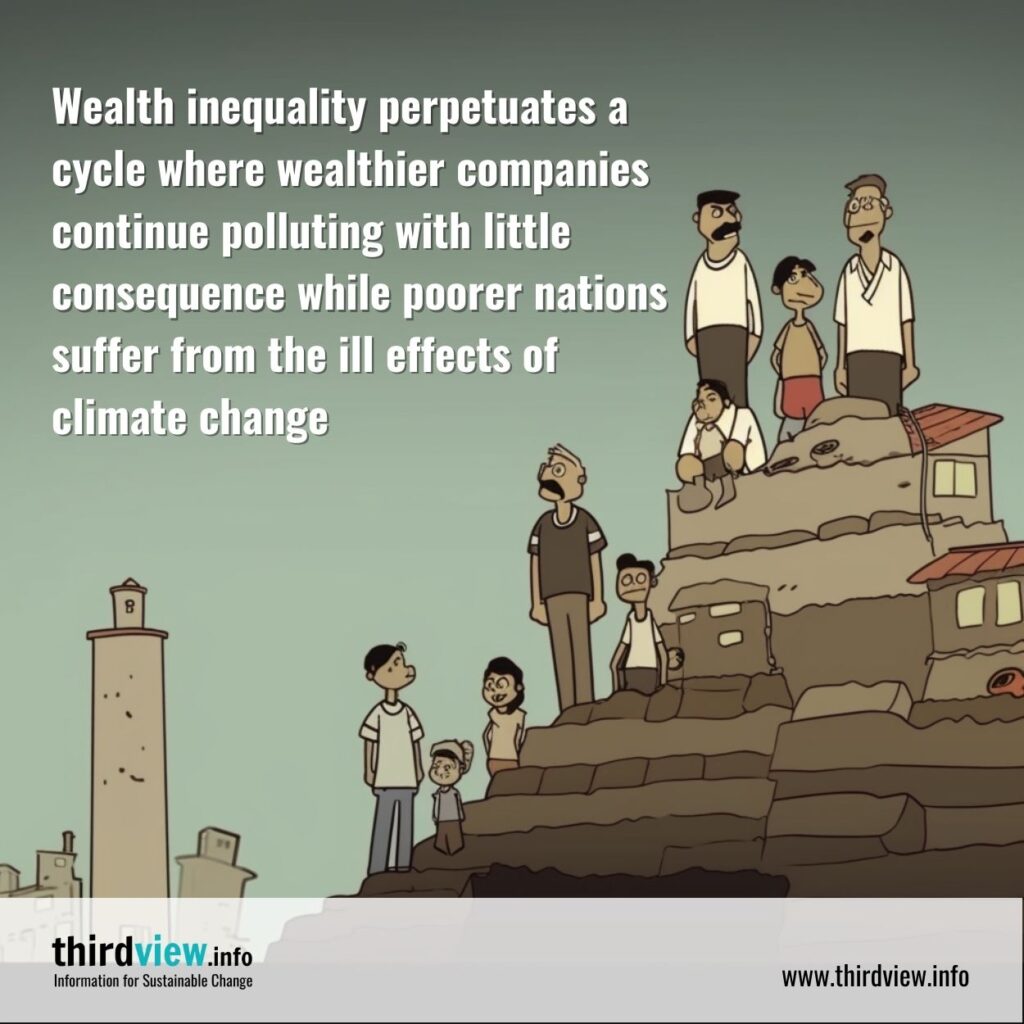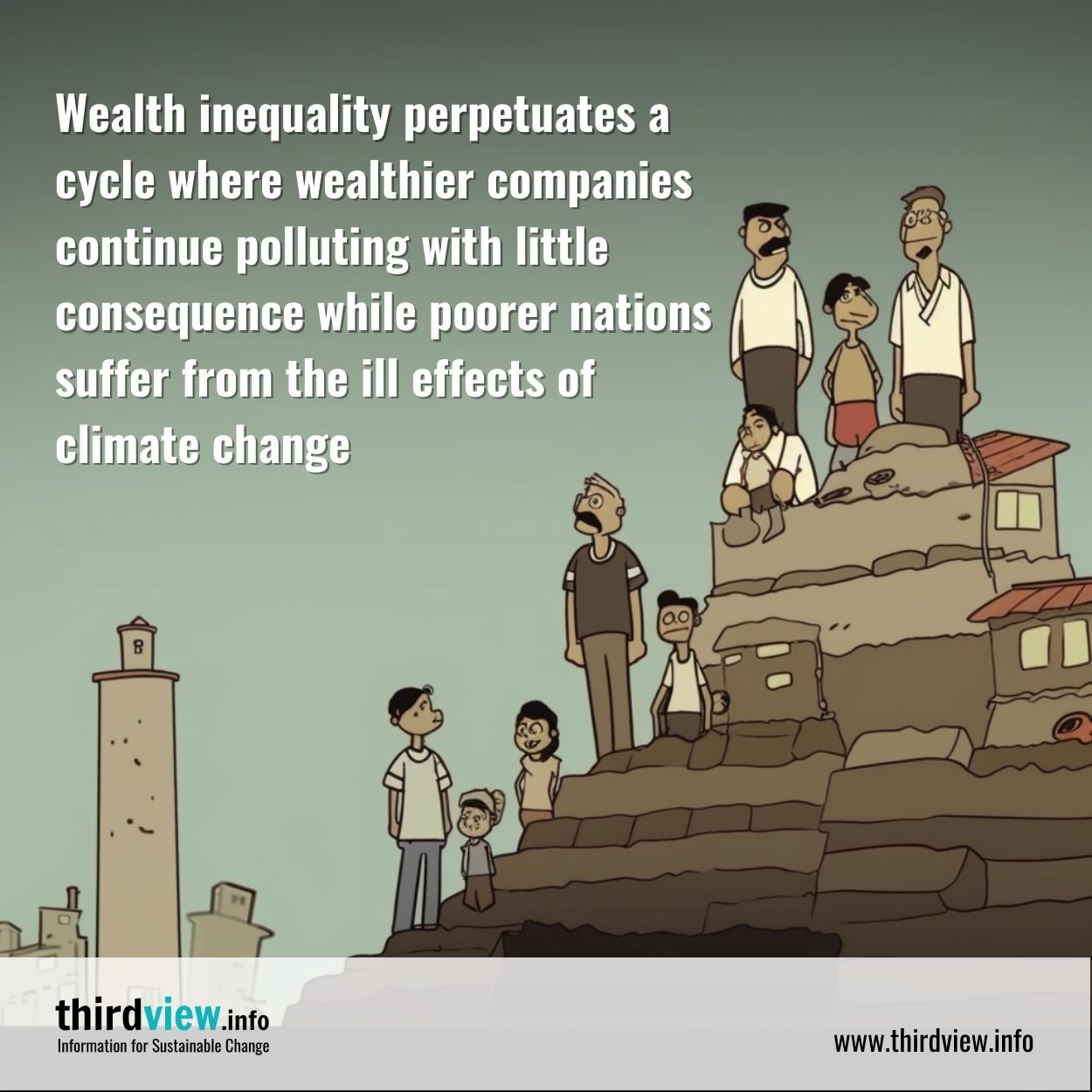In today’s world, wealth inequality has become a major issue, both economically and environmentally. With an ever-growing population, resources are being stretched thin and the environment is experiencing the effects of this disparity. But what is wealth inequality and how does it impact our planet? Let’s take a closer look at the environmental consequences of wealth inequality.
What Is Wealth Inequality?
Wealth inequality refers to the unequal distribution of wealth among individuals or countries. It occurs when some individuals or groups have more access to resources than others. This can be seen through statistics such as the Gini coefficient (a measure of inequality) which shows how much income concentration exists in a given area.
The Impact on Climate Change
The effects of climate change are becoming increasingly evident, with rising temperatures, melting ice sheets, extreme weather events, and changes in rainfall patterns impacting communities around the world. Unfortunately, it is those who are already disadvantaged due to wealth inequality who are most affected by these environmental changes. For example, those living in poverty often lack access to clean air and water and suffer from health issues related to poor air quality due to increased emissions from industry or other sources of pollution.
Additionally, poorer countries may not have the financial resources required to adequately respond to natural disasters caused by climate change such as floods or droughts. This further exacerbates existing inequalities between richer and poorer nations, creating an even bigger gap between them in terms of resources available for responding to disasters.
The Role of Polluters
The majority of carbon emissions come from large companies that continue to produce goods that create pollution despite knowing about their environmental impact. These corporations can often afford expensive tools for mitigating their emissions but do not always choose to use them due to cost considerations or lack of regulation in certain areas. This perpetuates a cycle where wealthier companies continue polluting with little consequence while poorer nations suffer from the ill effects of climate change with limited means for rectifying the situation. This highlights how important it is for governments and corporations alike to take responsibility for their actions when it comes to emissions reduction efforts so that we can all work together towards reducing global warming and its associated impacts on our planet’s ecosystems.
Wealth inequality has a direct impact on our environment due to its influence on carbon emissions production and access to resources necessary for adapting to climate change impacts such as extreme weather events or flooding disasters. Those who are already disadvantaged due to income disparities are often left without adequate means for responding effectively while wealthier corporations continue profiting without taking responsibility for their actions regarding emissions reduction efforts. It is more important now than ever before that governments and corporations alike step up their efforts towards combating climate change if we want our planet’s future generations to enjoy a healthy environment free from poverty-related concerns caused by widening wealth gaps between nations or individuals across society today.


